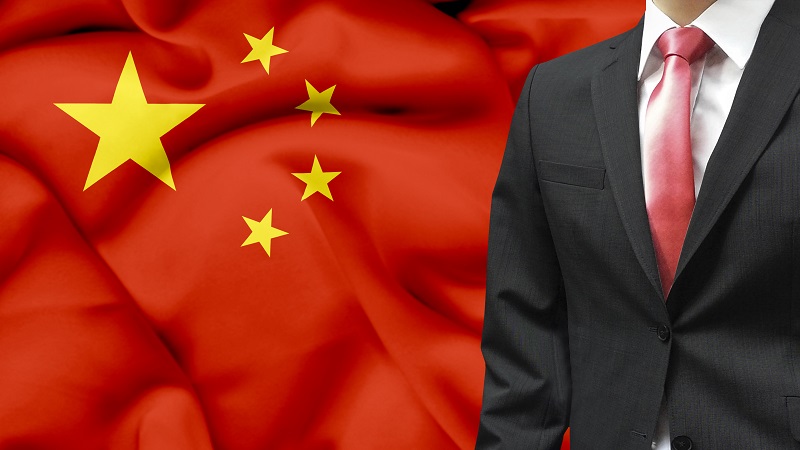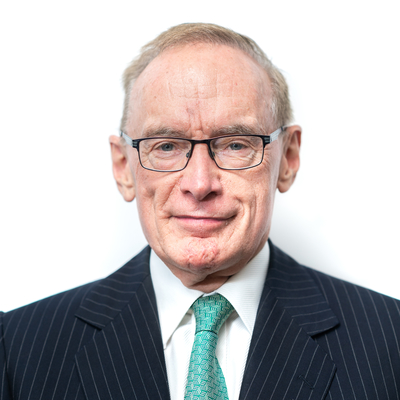One Chinese political donation does not a scandal make
June 10 2017

By Bob Carr
Note: This article appeared in The Australian on June 10 2017.
Let’s be clear. Efforts by any country to subvert Australia should be investigated, monitored and brought to light. Yes, let’s ban donations from non-citizens. Let’s go further still — my own suggestion — and ban any donations that might reasonably be suspected as seeking to influence Australian foreign policy.
However, almost a week after ABC’s Four Corners screened its episode Power and Influence: How China’s Communist Party is Infiltrating Australia, we have evidence of donations by two Chinese to Australian political parties. Two. This is the paltry revelation that produced this week’s sensational headlines along the lines of ‘China buys our politics’, ‘Chinese cash’ in Fairfax newspapers and ABC bulletins.
The finance pages of the Australian media feature large Chinese entities. Some are state-owned, such as State Grid and Yancoal. There are six Chinese banks and six airlines, many resource companies. There’s the Chinese Investment Corporation, part-owner of the Port of Melbourne. Gina Rinehart has a Chinese consortium as a partner in Kidman.
There are 300 companies in the China Chamber of Commerce in Australia.
There have been 1500 rich Chinese immigrants since 2012.
Yet with the dust settled we have this revelation: two donors. And one of those two donors, as The Australian’s Simon Benson reported yesterday, is in fact an Australian citizen.
Let’s tease that out. If you insist on classing a naturalised Australian who was born in China as a foreigner, well, that’s a big step. Discard naturalisation and make the determinant their country of birth and, whoa! That opens a Pandora’s box. One that would have seen Dick Pratt (born in Gdansk), Frank Lowy (born in Czechoslovakia) plus any number of Greek-born Australians or Lebanese-born Australians banned from donating to Australian parties. Big step, that.
Back to that single big donation from a Chinese national. Were there a strategic and systemic attempt by the Chinese to buy influence in Australia, may we have expected something more? Donations from the large companies, many state-owned? Fat cheques from some of those I’ve listed above (and that’s hardly an exhaustive list)? Not a cent apparently.
Some operation. Some Beijing puppet master. As an attempt to buy the politics of a nation-state it would not make a case study at the CIA’s Langley headquarters (since a third of the CIA’s exemplary covert action in the 1970s involved funding overseas political parties). It would have been derisorily dismissed in any Russian academy of subversive science.
Let’s assume ASIO briefed Australian political parties on the two men (as Fairfax and Four Corners reported) and the parties kept soliciting donations from them. I doubt if the Liberal Party national director or ALP national secretary would have heard something from ASIO they considered alarming and then placed their parties and leaders at risk (and consigned their own careers to the dustbin) by pressing ahead and seeking money from entities ASIO said were proven high-risk sources. That would have been worse than a crime, a blunder.
Might it be assumed that the ASIO brief was far from conclusive? Four Corners and Fairfax produced two examples of the mobilisation of Australia’s Chinese community. Let’s examine them. First, there were rallies for the 2008 Olympics. This was around nine years back, and we’re still bruised? Second, the large crowds welcoming Premier Li Keqiang when he visited in March. Any different from the Jewish community mobilisation for Israeli Prime Minister Benjamin Netanyahu this year? It was a good deal less than the joyous Indian celebration when Prime Minister Narendra Modi visited in 2014.
These dark references to mobilisation are barely stronger than last year’s China panic: ‘Mao commemoration concerts’. In the end there was no evidence of support from any of the Chinese media here or from Chinese diplomats in Australia. The notion of Mao concerts — repellent, to be sure — melted into thin air.
There is scant evidence of the 1.2 million Chinese in Australia being mobilised on foreign policy questions such as the South China Sea. The biggest issues in the Chinese community in the last federal election, according to some political campaigners, were Safe Schools and Muslim immigration. Liberal and Labor organisers will tell you there wasn’t a murmur about Scarborough Shoal or the Senkaku/Diaoyu Islands. I doubt a single federal MP has received a delegation on the subjects. In any case, many migrant communities reserve the right to lobby our government on foreign policy matters that touch their country of origin: Irish, Greeks, Macedonians, Turks, Tamils, Rohingya, Cypriots, and Jews in respect of Israel. It’s striking, in fact, there has been so little from a community as vast as the Chinese. Perhaps they’re too busy with business and professional life and getting their kids into university.
It’s an arrogant assumption among (Anglo) journalists that the Chinese in Australia are so simple they can be corralled and marshalled by Chinese agents. Or that, in the age of social media, they will buy a pro-Beijing line because it appears ex cathedra in a Chinese-language paper.
The ABC’s Chris Uhlmann wrote that Andrew Robb lobbies for a ‘Communist Party-backed trade park’. This struck me as a curious formulation. Uhlmann was referring to the Rizhao trade park supported by the local government council. It would make as much sense to indict Robb for arriving in China via a ‘communist-backed’ international airport, travelling to central Beijing on a ‘communist-backed’ expressway and staying in a ‘communist-backed’ hotel.
China’s political system is one-party, Marxist-Leninist. So this point (‘communist-backed’) can be levelled at every aspect of its life, from sewage systems to dental surgery. Of course Australians would be united in wishing China had pluralist politics and competitive elections. But for now it doesn’t and we deal with China as it is. That means, among all else, watching out for whatever it may do in domestic Australian affairs.
Four Corners, briefed by ASIO, produced one example of possible Chinese espionage, brought to light by an ASIO raid on the home of a retired intelligence official, Roger Uren, married to Chinese Sheri Yan. The raid took place in 2015. It has not resulted in a prosecution.
Given this gauzy instance is the only example Four Corners had, and that too after an ASIO briefing, either the Chinese spies are hopeless or our boys, steeled in Cold War combat against the Russians, are too good for them.
Australia has an overseas intelligence-gathering agency. It is called ASIS. It might be assumed that it gathers espionage in China. Maybe that’s what countries do. Spy on one another and try to block others from spying on you.
Just a thought.
Professor the Hon. Bob Carr is Director of the Australia-China Relations Institute at the University of Technology Sydney.

